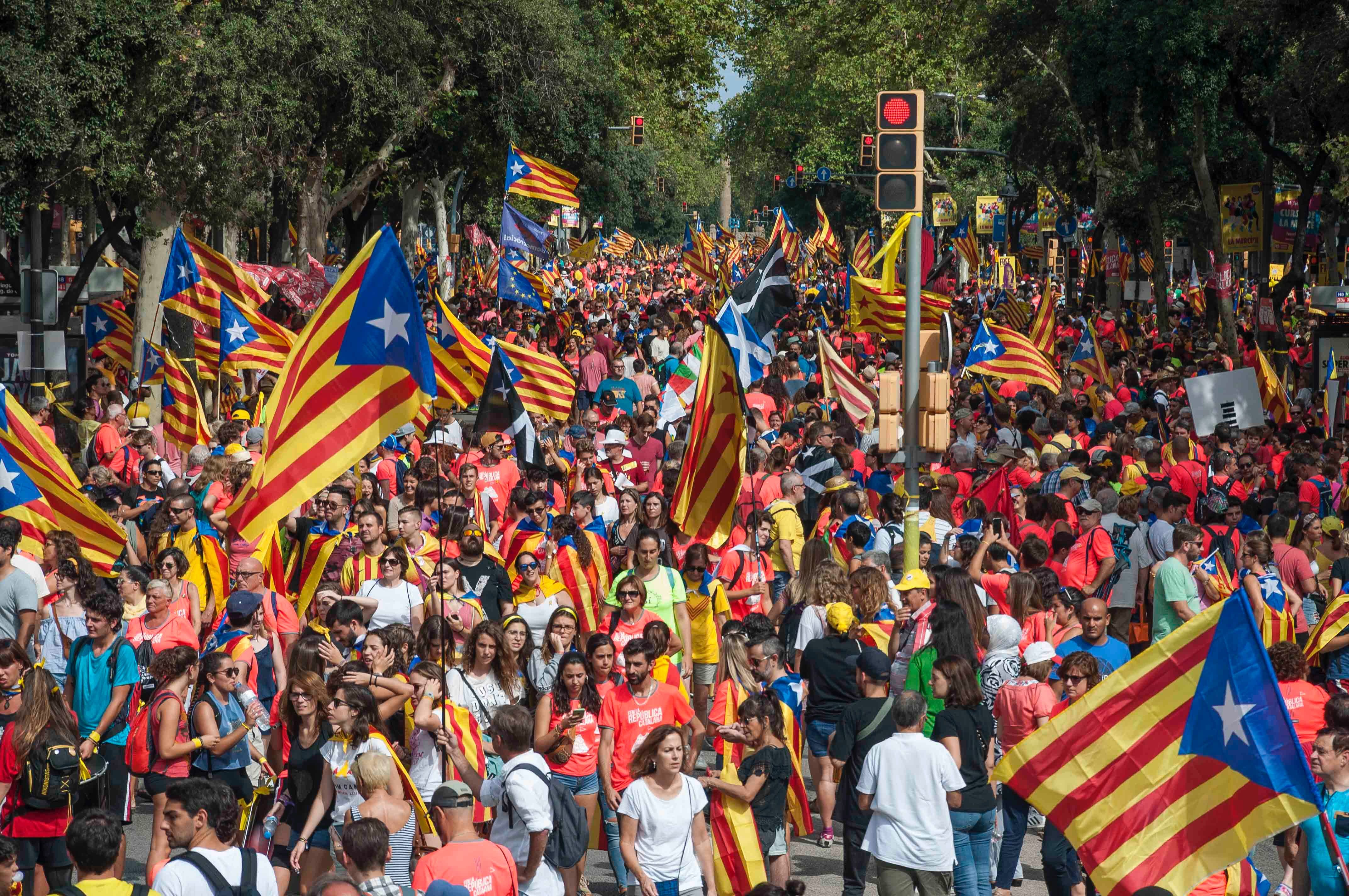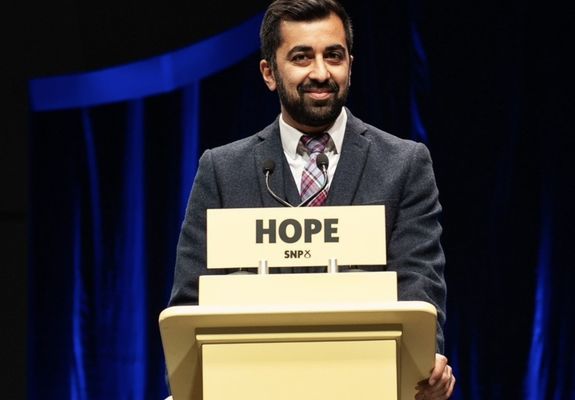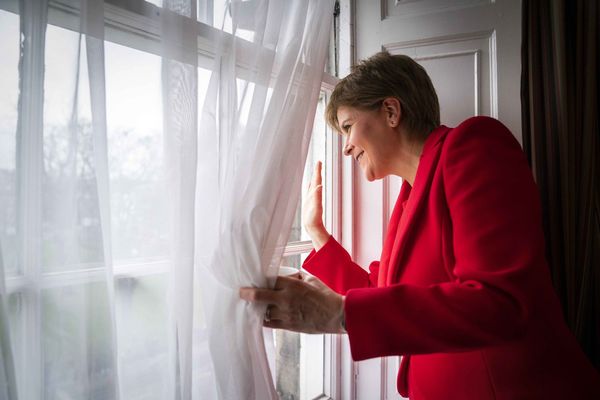THEY sure know how to march in Catalonia.
Supporters of independence in the north-east corner of Iberia have a long tradition of taking to the streets. In their hundreds and hundreds of thousands.
They will do so again next month, for their annual mega demonstration to mark La Diada, the national day marking the fall of Barcelona in 1714 to an absolutist Spanish king.
Every September 11 – pandemics allowing – independentistes tramp around the Catalan capital in a show – if not of force – then at least of passion.
I’ve covered this remarkable event. I think it is worthwhile thinking about what it means.
Because British unionist politicians, especially Conservative ones, look to be adopting a Spanish tactic to stop Scottish independence using the force of the law, and not their arguments.
And Scotland’s independentistes – though they will not admit this – are responding in the way their Catalan counterparts did.
Let us start with a bit of background. La Diada is about politics, sure, but it is also about a people telling the world they still exist. The date – as a national day – has been marked in one way or another since the 19th century.
The mega demos for independence, however, were inspired by the mass marches and human chains organised in the Baltic states against a faltering Soviet region three decades ago.
🗳️ Scotland has the right and the mandate to choose its future in a referendum.
— Yes (@YesScot) July 26, 2022
🥀 It's time Scottish Labour stop denying democracy and listen to the Welsh Labour First Minister, Mark Drakeford.
🏴 Let's build a fairer Scotland with independence: https://t.co/bkLETLnJTB pic.twitter.com/Oub4t6IxXg
Opponents of a sovereign Catalonia can muster big events too; just nothing on the same scale. That does not mean they lack numbers. Anything but. The latest opinion poll, published at the end of July, showed No ahead of Yes by a full 11 points, by 52% to 41%. This was the biggest pro-Spain lead in six years.
Support for independence in Catalonia – as in Scotland – has zig-zagged over the years. Catalonia call itself a “nation”, or at least its leaders do. But Spain says it is a “region”, and one which has no legal right to secede.
So Catalans have never had the kind of vote Scotland had in 2014, there has never been an agreed constitutional way of settling the issue. Catalan authorities tried and failed to hold a referendum in 2017. But they were stopped by Spanish law enforcement, their leaders jailed or forced in to exile. One, Clara Ponsati, ended up effectively in asylum in Scotland.
So before and after the events of 2017 Catalan nationalists have campaigned not just for independence, but for the very right to be recognised as a nation, as a place with a right to self-determination. They call this the dret a decidir, the right to decide for themselves. It was clever politics too. Because there are people who do not want independence, or who are ambivalent about it, but who think there should be a vote.
And this is as true in Scotland as it is in Catalonia.
That is important because in recent years Tory politicians – and other unionists too – have started to sing a Spanish song, rejecting the so-called indyref2 the SNP aim to hold a little over a year from now.
Liz Truss' "attention seeker" jibe at Nicola Sturgeon further evidence the Tories have no interest in expanding their support in Scotland. They are desperately trying to hold on to their core vote
— Paul Hutcheon (@paulhutcheon) August 2, 2022
A few years ago British Conservatives like David Cameron were almost Catalan nationalist heroes for “granting” a referendum. Now Mr Cameron’s successors have successively grown closer to a Spanish position. “Not now” to indyref2 has become “not ever”. Conservative leadership frontrunner Liz Truss has woo-ed her base with anti-SNP rhetoric. This month, at a hustings in Exeter, she said Nicola Sturgeon should be ignored, that the Scottish First Minister was an “attention-seeker”. The Devon party faithful cheered. Their Scottish allies slapped their foreheads in despair.
Alex Massie, the thinking unionist’s favourite commentator in Scotland, tweeted about Ms Truss: “Yet again, Scottish Unionists can be forgiven for thinking that with notional friends like these, the SNP are the least of their problems.”
The Scottish nationalist response has been to come up with its own version of the Catalan dret a decidir, ‘the right to choose”. Sturgeon wheeled this slogan out at the last Scottish elections, when her SNP and its allies secured a majority in Holyrood for indyref2. It has, I think, a bit of mileage in it. How so? Well, let us look at polls.
Scots, when asked about independence, are pretty evenly split. Nationalists and unionists often celebrate surveys when they pull ahead, but they rarely do so by more than the margin of error. The two greats sides of Scottish politics are essentially stuck in a statistical draw.
Yet again, Scottish Unionists can be forgiven for thinking that with notional friends like these, the SNP are the least of their problems. https://t.co/N1BvCTWtPw
— alexmassie (@alexmassie) August 2, 2022
Most pro-UK voters, it has to be said, are opposed to indyref2. Diehard unionists especially quite like the stance being taken by Truss and others, perhaps as much as her Exeter audience this month. But there is still a clear if small majority of Scottish opinion in favour of a second big vote, if not necessarily on Sturgeon’s timetable.
Polling on this has been unbelievably consistent. Basically, around 45% say No to an indyref2 over the next five years and 55% say Yes. Support for a new vote within two years is lower, 24% at last count, according to the excellent polling site What Scotland Thinks.
What does all this mean? Well, it means that we can expect the SNP and their allies to push hard on the rhetoric of democracy.
So far Truss and other Conservatives, thinking of their party electorate, have countered with Twitter-grade talking points, including the slightly weird and false claim that Scottish nationalists promised 2014 would be a once-in-a-lifetime event (rather than the duller reality that they said they feared it might be).
The next Prime Minister needs to work with Nicola Sturgeon on the genuinely important issues.
— Stephen Kerr MSP (@RealStephenKerr) August 2, 2022
The best way to do so is ignore her attention seeking Indyref2 blethering, and turn the focus on health, education, justice, climate change, etc.
But what happens if the Tories just keep saying No? In some ways those giant protests in Barcelona – like the ones in the Baltic states – came about because existing institutions did not offer a way to resolve national questions.
Could we see Scottish nationalists respond to a democratic stand-off by turning to extra-parliamentary tactics? Could we see big flaggy marches anything like those held in Catalonia?
There have been some pro-independence rallies and these do tend to illustrate news stories about what is happening in Scotland. Saltires and Yes t-shirts make easy media images. So, of course, do union jacks.
But we have seen nothing like La Diada in Scotland. Will we? I don’t know. It does not feel very Scottish.
Nicola Sturgeon has her Catalan-style “right to choose” slogan. But – if we are being frank – the SNP, after years of assuming its opponents are democrats, does not know how to counter a Spanish-style crackdown.








